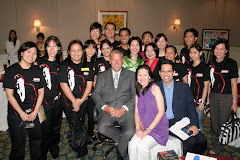The power of thought is indisputably great. For illustration, look at the life of Henry David Thoreau, a 19th-century Massachusetts philosopher.
In 1849, Thoreau, as a relatively unknown scholar, published his thoughts in a controversial essay about civil disobedience. The essay expressed his ideas about justice:
- Not all laws are just.
- A person should respect justice more than the law.
- Without resorting to violence, a person of conscience is justified to transgress the law to protest its injustice.
THOUGHTS ABOUT THINKING
Thoughts never begin fully formed.
Have you ever looked through a microscope? At first glance, the image appears blurry and indistinct. However, after adjusting the lens, the image comes into focus, and you can see with remarkable clarity.
When thoughts enter my mind, they are hazy and disordered, much like the initial image seen through a microscope. I have to fine-tune my thoughts by dwelling upon them, and connecting them to other thoughts I've had. It takes awhile for me to wrestle with a thought before its merit becomes clear.
Thoughts take time to develop their potential.
I am not a naturally brilliant thinker. My mind doesn't overflow with out-of-the-box creativity. However, I do leverage experiences to stretch my thoughts. I have found that reflection turns my experience into insight. At the close of each day, I'll review important lessons I've learned. I'll mine failure until I've gained a nugget of wisdom, or I'll consider how the day's events validated or invalidated one of my ideas. Through time, evaluating my experiences helps my thoughts to expand and mature.
Thoughts take others to develop their potential.
Alone, my thoughts are shallow and unexceptional. However, I am able to polish and refine them through my interactions with other leaders. I enhance my own thinking by piggybacking on the wisdom of friend and colleagues. In conversations or observations of their behavior, I strengthen and confirm my own inklings about leadership and life.
Each of us is trapped inside our own perspective and limited by blind spots and prejudices. If we isolate ourselves, we diminish our minds, and our thoughts atrophy.
We are wise to seek out others to test our assumptions and sharpen our thinking.
Thoughts are very fragile in the beginning.
Gardeners know the delicate nature of a newly planted seedling. To survive, the plant must receive nourishment and be protected from harsh winds, weeds, or hungry animals. Until its roots take hold and its stem grows, the seedling is vulnerable.
Likewise, our thoughts are fragile at first. They are endangered by pessimism, busyness, insecurity, forgetfulness, and a host of other threats. In the words of Bob Biehl, "Ideas are like soap bubbles floating in the air close to jagged rocks on a windy day."
In order to grow, our thoughts need careful attention and cultivation.
THOUGHT BUSTERS
Thoughts only reach their potential in a healthy environment. During my time as a leader, I've encountered the following environmental hazards, or thought busters, which threaten to destroy good thinking.
Criticism
When leaders pay any cost to ward off criticism, they sacrifice their best thoughts. In the words of Elbert Hubbard, "If you have something others don't have, know something others don't know, or do something others aren't doing, then, rest assured, you will be criticized." In my opinion, thinking requires boldness, the courage to be second-guessed, and readiness to endure conflict.
Lack of personal commitment to thinking
Taking action is by no means a negative quality in a leader. However, when a leader is all action, it's only a matter of time until he or she falls behind, steers off course, and surrenders the reins of leadership. I like Gordon MacDonald's appeal to mental fitness:
"In our pressurized society, people who are out of shape mentally usually fall victim to ideas and systems that are destructive to the human spirit and to the human relationship. They are victimized because they have not taught themselves how to think, nor have they set themselves to the lifelong pursuit of growth of the mind. Not having the faculty of a strong mind, they grow dependent upon the thoughts and opinions of others."
As leaders, thinking keeps us in front. Before we shape the future, we must get our minds in shape.
Excuses
"I don't have enough time," has been my most common excuse to avoid thinking. However, blaming time constraints is not a legitimate excuse. After all, a great idea is one of the greatest commodities a person can own. Besides, by taking the time to think, we invent smarter ways to expend our energy and resources.
"I'm not creative," has been another excuse of mine. Of course, blaming my lack of creativity is actually a sorry excuse for being lazy. Thinking well isn't easy. It takes concentration, focus, and, most challenging of all, the discipline to stop moving for a few moments.
For information on John Maxwell's Leadership seminars, please email us at bingericta@gmail.com or call 813-2049/2732 and ask for Bing Ericta. Text MAXWELL ON to 4632 (Smart) to get daily SMS leadership insights from John Maxwell.
